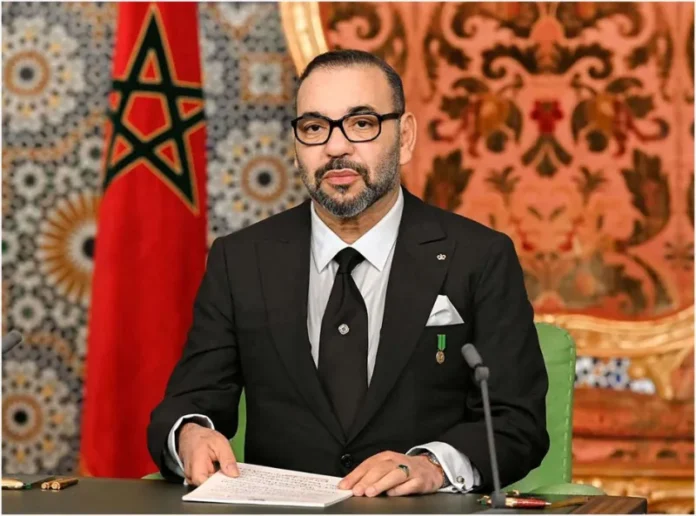King Mohammed VI chaired a Ministerial Council today, focusing on Morocco’s preparations for its bid to co-host the 2030 FIFA World Cup with Spain and Portugal.
Budget Minister and President of Moroccan Football Federation Fouzi Lekjaa provided an update on the progress of the bid during the Council. He stressed Morocco’s positive evaluation by FIFA, recalling that the governing body of world football has recognized and hailed the country’s readiness to meet the demanding requirements for hosting a World Cup.
Last week, a report by FIFA confirmed that the bid meets and surpasses the necessary criteria for the World Cup.
The report describes the number of stadiums proposed for the tournament as impressive, drawing attention to Morocco’s ambitious plans to build the Hassan II Stadium in Casablanca.
The Council also discussed extensive plans for infrastructure development, including upgrades to stadiums, airports, and national roads, as well as investments in the hospitality, medical, and telecommunications sectors.
To ensure the success of the World Cup bid, King Mohammed VI instructed the creation of an expanded committee, which will include representatives from the government, civil society, the Moroccan diaspora, and African experts.
This committee will oversee the execution of the country’s infrastructural and logistical projects, ensuring a coordinated effort to meet the World Cup’s extensive demands.
According to a statement from the Royal palace on the council meeting, mobilization will be further strengthened to accelerate the implementation of structural priests, including upgrading stadiums, expanding and renovating airports in the six host cities, as well as strengthening road infrastructure.
The measures will also include launching an integrated territorial development program that extends beyond the host cities, developing hotel and commercial infrastructure, strengthening and modernizing medical services in addition to expanding and modernizing telecommunication networks.
Morocco is also set to launch a large-scale training program to boost the skills of youth.
The minister noted that this sport event will serve as an opportunity for Morocco to boost the national economy, create more job opportunities and enhance the country’s tourist appeal.
In addition, the meeting saw the approval of several international agreements to strengthen Morocco’s ties with other countries.
The six international agreements include four bilateral and two multilateral deals aimed at boosting Morocco’s operation and partnerships with several countries, the statement added, noting that the bilateral agreements concern the development of cooperation with several European countries.
They focus on mutual recognition of driving licenses, criminal cooperation and improving the effectiveness of combating cross-border crime as well as military and technical cooperation.
It also announced the appointment of Zouhair Chorfi as head of the National Electricity Regulatory Authority.
The statement concluded by conveying King Mohammed VI’s instructions to review the regulatory institution and transform it into a National Energy Regulatory Authority. This aims to expand its scope to cover all sectors of the energy field, including natural gas, new energies such as hydrogen and its derivatives, as well as production, storage, transport, and distribution.

